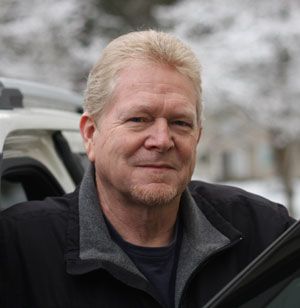Resolve to improve
We often make plans to better our lives at the start of each succeeding year. Since that time is upon us for 2014, let’s all give better driving a top spot on our list of resolutions.
After all, vehicular crashes are the number one cause of death for children and young adults. Later in life, biological aging creates higher death from health maladies, but traffic deaths remain high on the list for every age. Driving is one of the risks in life that we have the most control over, so let’s all improve!
Operating a vehicle is not that difficult, but that is one of the problems. Since vehicle operation is relatively easy, and driving down the road is a simple task among sparse or well-behaved traffic, we can be lulled into complacency. Much of the time, we can even commit driving errors without consequence. These conditions often lead to sloppy driving.
This being the case, we may be woefully unready to react quickly and properly to emergencies and unexpected actions of other drivers. This brings us back to the “D” word: distraction. If you can avoid succumbing to the long list of potential driver distractions regularly discussed here, you’ll automatically drive better.
It sounds simple, but if you are paying attention to the driving task at all times, you’ll drastically improve your odds of avoiding trouble when it shows up. For example, when driving a two-lane state route (highest accident rate among roadways), you should consider every vehicle approaching from the other direction as a candidate to cross into your lane. That way, you might avoid a sideswipe or head-on by a momentarily distracted driver.
Also, avoid angering other drivers, and work to curb your own ire. With the many pet driver peeves discussed here over the years, we should all know what not to do to enrage others. That means behaviors like tailgating, failure to signal, forgetting to dim high beams, riding continuously in the left lane without cause, or not taking a right-on-red are all things to avoid. And on the other hand, they should be things to forgive when others commit them.
For this year and beyond, strive to know your vehicle and its operation well. Become familiar with ALL of its controls — the owner’s manual makes for good reading when in doubt. Keep track of your car or truck’s state of maintenance, including engine oil, tires, lights, battery, and brakes.
Another area for potential improvement is in knowledge of the rules of the road. If you are uncertain about a driving rule, check the driver guide available for each state. You can also find complete listings of every state’s statutes on individual state websites.
It’s best, while driving, to avoid condemning other drivers for their faults. All drivers would benefit from recognizing that poor drivers will always be with us, and that good drivers will always make occasional mistakes, so dealing with them in a constructive way makes sense.
When you see someone royally screwing up, try to make a game of it. When someone is tailgating you, for instance, try to decide why. Is their accelerator stuck? Does he/she have no depth perception? Are they suffering from low IQ? Do they issue discount driver licenses?
Most of all, work to lessen your own errors. When you make an error, recognize it and vow not to repeat it. When you’ve made an error and not had an accident, you have been given a reprieve — please learn from it.
Though driving may not be difficult, driving well takes some effort. Become familiar with road rules, know and maintain your vehicle, minimize errors, learn from others’ mistakes, wipe out distraction, and “see the big picture” while driving.
With a concerted effort, we should all be able to drive well. Of course, those who drive poorly will always have a presence, but it’s actually up to the good drivers to figure a way to accommodate their errors and avoid unwanted incidents. As I’ve often said: You can’t control the actions of others, but you can control your reaction to them.
Readers may contact Bill Love via e-mail at precisiondriving@spokesman.com.
